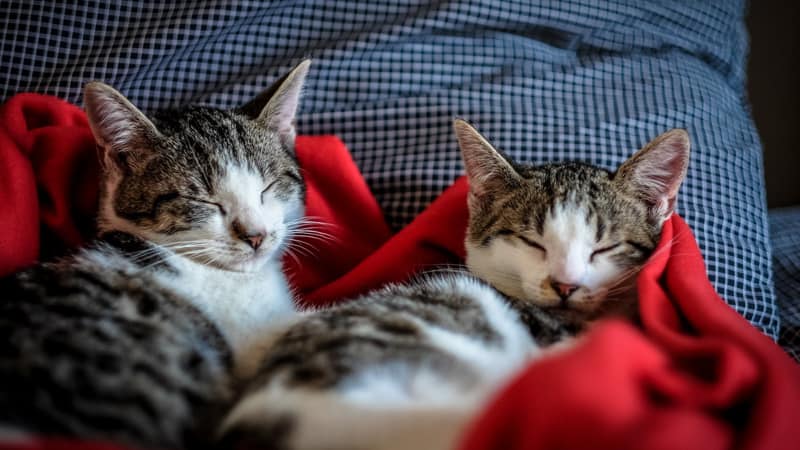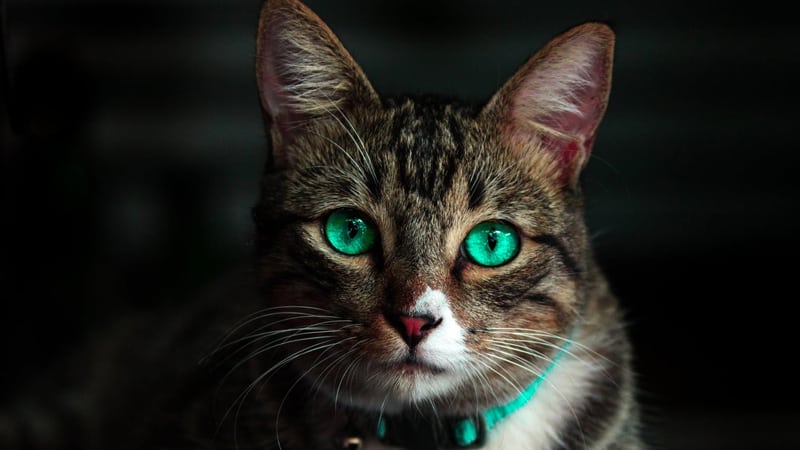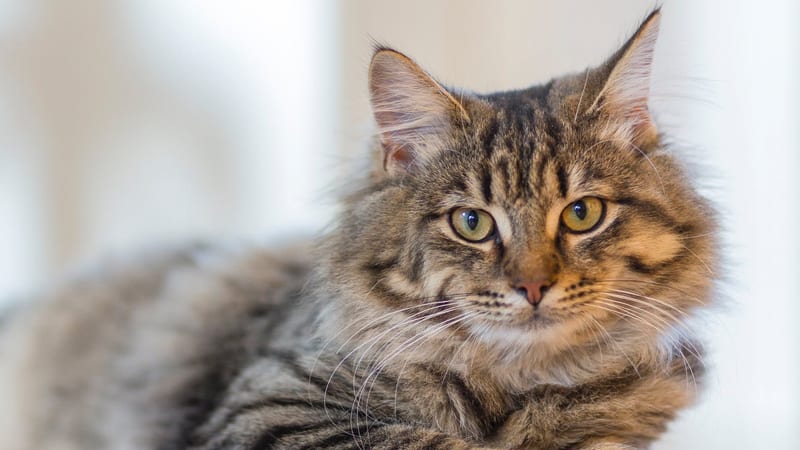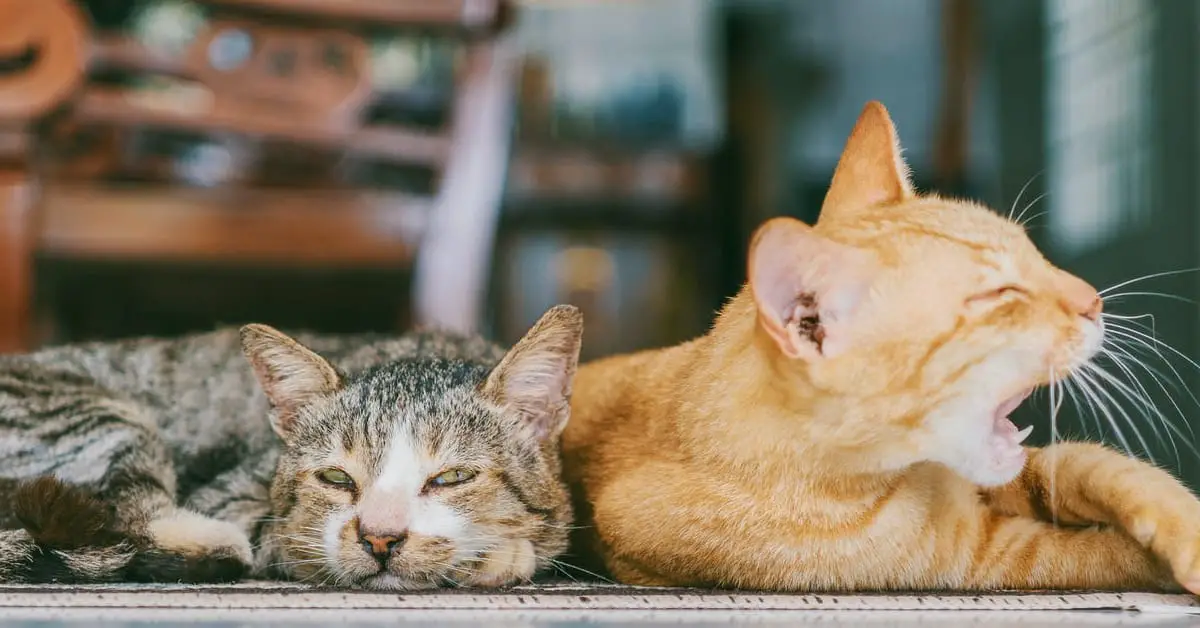For cat parents, nothing could be scarier than discovering your fur baby has run away from home. Not knowing where they are, how they are faring, or whether they would return is unsettling enough. Since cats run away for various reasons, could their unhappiness be one of them?
Cats are more likely to run away for reasons related to their genetic instincts than for emotional issues. While your cat may get depressed, it is more likely to withdraw and display other behavioral changes than to run away.
This article delves into why cats suddenly run away and whether they run away if they are unhappy. I also discuss how you can attract a cat back home and whether cats come back after running away from home.
Why Do Cats Suddenly Run Away?

If you have had a feline for a while, you can attest to the fact that cats often run away. They may disappear for hours or days at a time, especially if you have an indoor-outdoor cat. Your cat won’t necessarily return to you despite having a good sense of direction.
Hence, understanding why cats suddenly run away can help you take measures to keep your cats safe and find them if they take too long to return. Cats suddenly run away for many reasons, including:
- Their reproductive instinct
The reproductive instinct in cats is strong in unneutered male cats and female cats in heat. An unneutered male cat will spend a lot of time outdoors, sniffing for potential mates. They can travel far from home to mate if there is no suitable partner in the area.
- Sudden changes in their environment
Cats are creatures of habit, and minor changes in their immediate environments can disturb them enough to send them packing. Slight changes in smells and sights can upset their routines. Have you bought a new couch? Did you bring a new pet home?
These things can affect your cat’s perception of their safe space and cause them to retreat.
- Curiosity and cats
Cats are curious creatures who enjoy following their curiosities and enjoying. Chasing butterflies in summer, and other things can take your cat away for hours or even days at a time.
- Hunting instinct
Even domesticated cats still possess this strong, biological instinct we see in big wild cats. Cats are expert hunters, and your cat having enough Fancy Feast at its disposal is not enough to quell its need to hunt.
It is perfectly normal if your outdoor cat hunts for prey away from home.
- Fear
A scaredy-cat will either freeze, fight, or run into yonder land. Although anger could cause cats to run away, fear is a more likely reason. This behavior is prevalent in formerly stray or feral cats.
- Sickness and stress
When cats are ill or close to dying, they prefer to find a secluded place to recuperate or move on from this world. The problem is, their chosen area of comfort might not be on your property.
Whatever the case, you can take measures to protect your cat and prevent them from running away as much as possible.
Do Cats Run Away If They Are Unhappy?

Although cats sometimes run away because of rage, sheer fear is a more common reason for cats to run away. Unhappiness, poor treatment, neglect, and abuse are also valid reasons for a cat to run away.
Of interest, when people say cats have “run away,” it is doubtful that they did so. The cats probably went exploring for a mate or prey and ended up somewhere else. If the cats have no identification, an animal shelter or someone else’s house is a likely location for them to end up.
They could also be injured, sick, or dead from motor accidents or other predators. Another thing to note is that cats may run away to seek attention. If your cat feels neglected by you, it can exhibit fear and anxiety towards you: avoiding you when you return or twitching tails.
When they notice you call out for them every time they run away from you, they may do it to get your attention.
Signs of a Depressed Cat
Most cats are active and outgoing, so it can be pretty easy to spot changes in your cat’s mood that may indicate depression. Here are some signs to look for:
- Low energy levels and more sleep than usual.
- Changes in appetite, including a loss of interest in their regular diet.
- A lack of grooming behavior.
- Changes in routine—no longer using their litter box or sleeping in their usual spot.
Cats may get unhappy for various reasons, including a lost bond between you two, losing a loved one, illness, or injury.
Getting toys for your cat, spaying or neutering your cat, and simulating hunting behaviors are some ways to keep your cat busy. Mental stimulation and activity can help prevent depression in cats.
How Do You Attract a Cat Back Home?

You can train cats to return home by various means. You could use a bell and treat at specific times of the day: they come home when you ring a bell and feed a smelly treat at dusk.
If your cat has run away for hours or days and you are uncertain about it finding its way home, you can do these:
- Put out a strongly scented food they like to get their attention.
- Call them calmly, without panic in your voice.
- Leave a door or window to your house open.
- You can cut their favorite blanket in pieces and leave them around your vicinity or keep their favorite toy outside.
- Keep some used litter from your cat’s litter tray outside.
Using familiar scents and sounds is a sure way to attract a cat back home.
When Cats Run Away from Home Do They Come Back?
There is no simple answer to this question because many factors influence a cat’s disappearance from home. Chief among these factors are reproduction, hinting, and expanding territory.
A cat that frequently disappears and returns after two to three days probably runs away for one reason above. However, all cats are different, and some might be unable to find their way home due to disorientation.
Because of the uncertainty surrounding cats returning home after running away, it would be best if you look for your cat as soon as possible.

